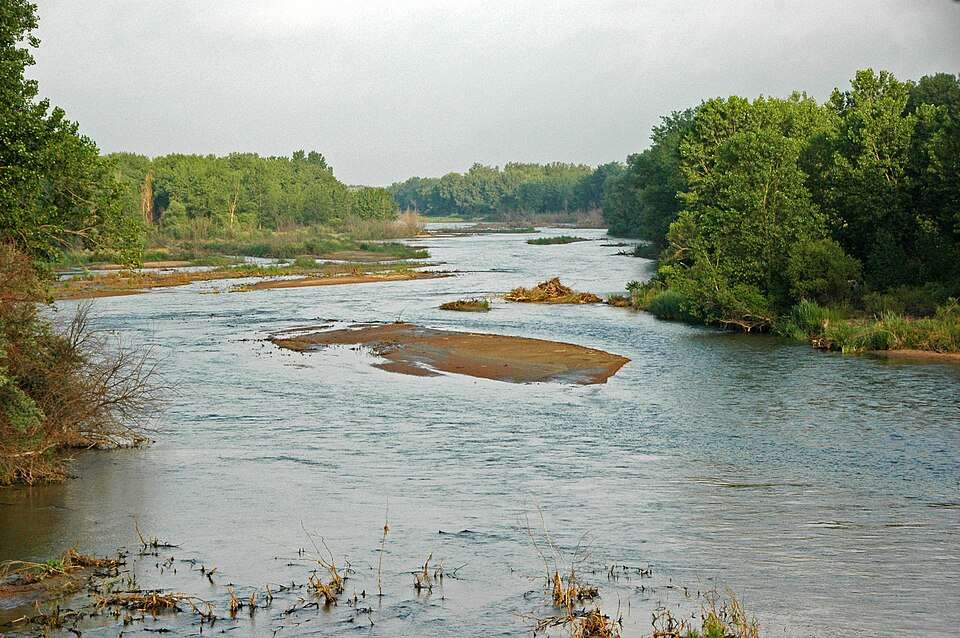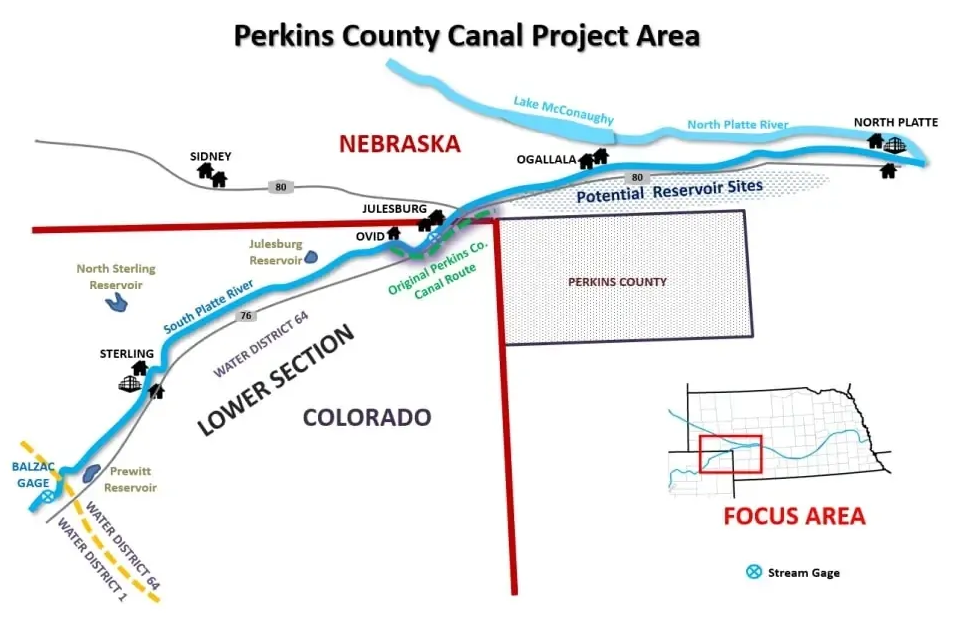
By Allison Peck
Nebraska and Colorado are embroiled in a significant water dispute that has escalated to the U.S. Supreme Court. The conflict centers on the South Platte River, where Nebraska alleges that Colorado is violating the 1923 South Platte River Compact. Nebraska claims Colorado is restricting water flow and obstructing the construction of the Perkins County Canal, a $500 million project Nebraska says is necessary to secure more water for its use.
In response, Colorado officials argue that the lawsuit is premature and lacks merit. Governor Jared Polis and Attorney General Phil Weiser have called Nebraska’s case a “meritless escalation,” saying Colorado is fully complying with the compact and that the canal is unnecessary. They assert that the lawsuit is an attempt to renegotiate a century-old agreement.
The South Platte River Compact, signed in 1923 and ratified by Congress in 1926, allocates water rights between Colorado and Nebraska. Under the compact, Nebraska is entitled to 120 cubic feet per second (cfs) of water during the irrigation season (April 1 to October 15). Additionally, Nebraska can divert up to 500 cfs during the non-irrigation season, provided it constructs a canal to transport the water. The Perkins County Canal is Nebraska’s proposed solution to this requirement.

Nebraska lawmakers approved the canal project in 2022, citing concerns over Colorado's increased water use. However, Colorado officials contend that the canal is unnecessary and that Nebraska's claims are speculative. They argue that the lawsuit is an attempt to renegotiate the century-old compact and that it lacks a legal basis for Supreme Court intervention.
Colorado Governor Jared Polis and Attorney General Phil Weiser have characterized Nebraska's lawsuit as a "meritless escalation" and urged the Supreme Court to reject it. They assert that Colorado is fully complying with the South Platte River Compact and that the dispute is not ripe for judicial resolution. Weiser emphasized that even if the Court decides to take up part or all of Nebraska’s case, he is confident that Colorado will prevail on the merits.
If the Supreme Court agrees to hear the case, it could have significant implications for water rights and interstate agreements. A ruling in favor of Nebraska could set a precedent for renegotiating long-standing water compacts, potentially affecting other states with similar agreements. Conversely, a ruling in favor of Colorado could reinforce the sanctity of existing compacts and discourage future challenges.
The U.S. Supreme Court has yet to decide whether it will take up the case. If the Court agrees to hear the case, it could take years before justices hear oral arguments or issue an opinion. In the meantime, both states continue to monitor the situation closely, as the outcome could have lasting effects on water management and interstate relations in the region.




